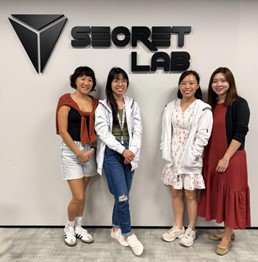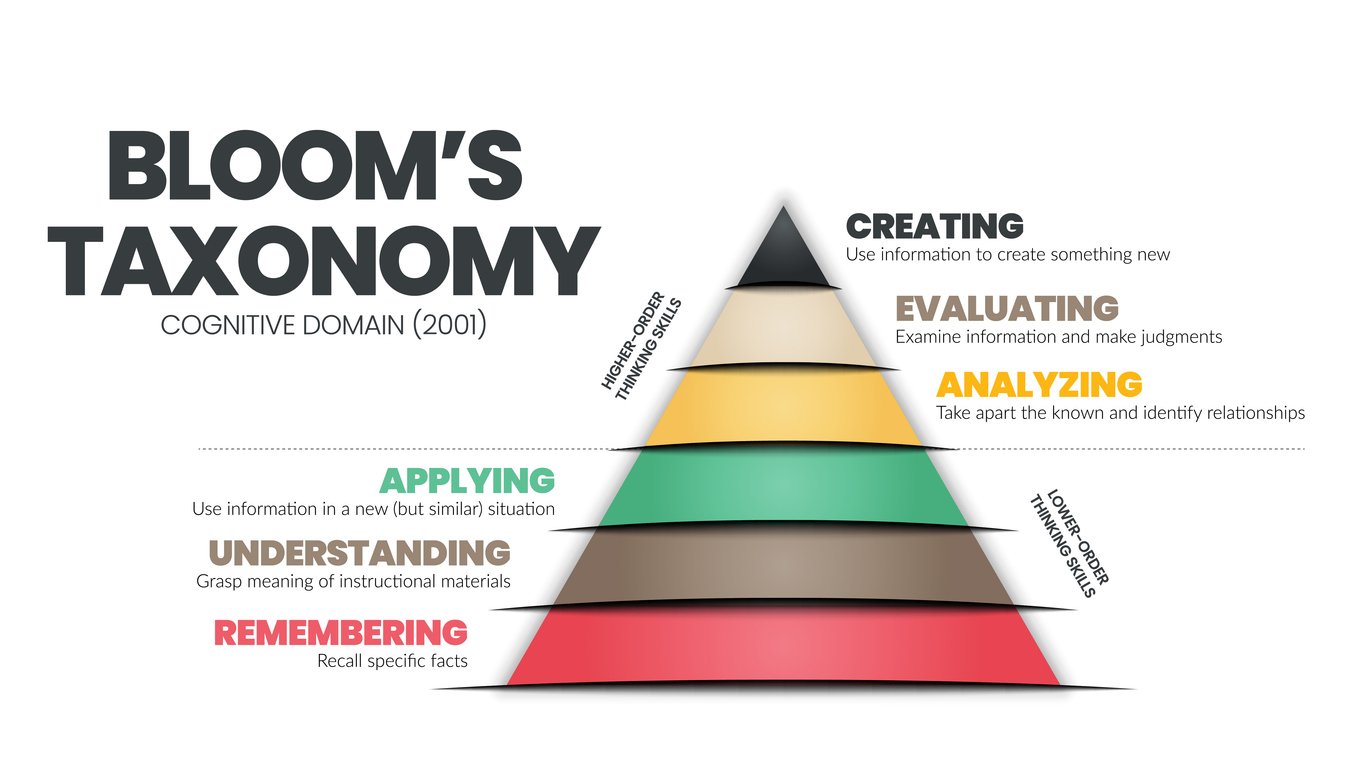
Event
Empowering People Team For Impact: Secretlab’s Journey With Learning-Focused Leadership
Empowering People Team For Impact: Secretlab’s Journey With Learning-Focused Leadership
Description
As a global leader in its markets, Secretlab has built its reputation on modern ergonomics, sleek design, and an unwavering commitment to innovation. With over a million chairs shipped annually to more than 60 countries, the company’s reach continues to grow, fueled by its bold vision and pushing boundaries in ergonomic design.
However, success at Secretlab is not only about creating world-class products. Building a resilient and capable workforce is just as critical. Recognising this as a strategic value to make a lasting impact, the company set out to strengthen its People team capabilities, focusing on developing leaders and sustaining a high-performance culture that would support its growth and ambition.
To seize this opportunity, Secretlab partnered with IAL to embark on a Learning Enterprise Alliance project under the National Centre of Excellence for Workplace Learning - (NACE@IAL) initiative. The aim: to equip its People team with deeper capabilities in coaching, facilitation, and reflective practice. What followed was a transformative journey.
Leveraging people team as the catalyst
.jpg)
However, success at Secretlab is not only about creating world-class products. Building a resilient and capable workforce is just as critical. Recognising this as a strategic value to make a lasting impact, the company set out to strengthen its People team capabilities, focusing on developing leaders and sustaining a high-performance culture that would support its growth and ambition.
To seize this opportunity, Secretlab partnered with IAL to embark on a Learning Enterprise Alliance project under the National Centre of Excellence for Workplace Learning - (NACE@IAL) initiative. The aim: to equip its People team with deeper capabilities in coaching, facilitation, and reflective practice. What followed was a transformative journey.
Leveraging people team as the catalyst
.jpg)
People team at Secretlab (Photo by Secretlab)
As the team that works closely with all departments and leaders, the People team is well placed to guide leadership practices and influence company culture. With this in mind, Secretlab’s People team wanted to go beyond just managing processes. Their goal was to actively support growth by building skills in facilitation, coaching managers, and helping teams reflect and improve.
A targeted learning design: structure meets flexibility
To support this shift, IAL’s consultant began with a comprehensive diagnosis, including stakeholder interviews, capability assessments, and alignment exercises.
The findings showed that while the People team already had strong foundations, their impact could be amplified by:
● Make training more useful and relevant by tying it closely to daily work and role-specific skills
● Have a clearer structure for mentorship and coaching
● Design programmes that link directly to business needs so learning has real impact
● Encourage innovation through cross-team collaboration
From this, a co-created workplace learning plan emerged with three key priorities:
1. Facilitation skills: To lead group discussions, manage dynamics & design engaging experiences
2. Reflective practice: Introduced through four models to build critical thinking & organisational learning
3. Mentoring & coaching skills: Captured in a practical playbook to support employee and manager growth
Participants were encouraged to embed these learnings into their daily workflows and leadership contexts.
Translating theories to workplace applications
Shift #1 - Integration of facilitation tools
The integration of facilitation tools such as empathy mapping and design thinking into leadership training. “For example, using empathy mapping, one of our managers shared that she better understood how her assumptions impacted her interactions during high-pressure team discussions,” said Ika Fitria, Manager, Customer Support.
Shift #2 - Adopting a different perspective
Secretlab’s Learning Team also reframed their role — from task executors to being intentional in shaping leadership and culture.
Two learning frameworks reinforced this:
● Kolb’s Experiential Learning Cycle: This includes pre-training consultations to ensure training is clearly linked to business or workplace needs (e.g. waste management or technical troubleshooting skills on specific equipment)
● Bloom’s Taxonomy: Breaking learning into stages (remembering, understanding, applying, creating) to design clear, business-aligned objectives
Today, the Learning Team carefully assesses how each programme contributes to company goals before adopting it, ensuring that learning drives meaningful impact.

A targeted learning design: structure meets flexibility
To support this shift, IAL’s consultant began with a comprehensive diagnosis, including stakeholder interviews, capability assessments, and alignment exercises.
The findings showed that while the People team already had strong foundations, their impact could be amplified by:
● Make training more useful and relevant by tying it closely to daily work and role-specific skills
● Have a clearer structure for mentorship and coaching
● Design programmes that link directly to business needs so learning has real impact
● Encourage innovation through cross-team collaboration
From this, a co-created workplace learning plan emerged with three key priorities:
1. Facilitation skills: To lead group discussions, manage dynamics & design engaging experiences
2. Reflective practice: Introduced through four models to build critical thinking & organisational learning
3. Mentoring & coaching skills: Captured in a practical playbook to support employee and manager growth
Participants were encouraged to embed these learnings into their daily workflows and leadership contexts.
Translating theories to workplace applications
Shift #1 - Integration of facilitation tools
The integration of facilitation tools such as empathy mapping and design thinking into leadership training. “For example, using empathy mapping, one of our managers shared that she better understood how her assumptions impacted her interactions during high-pressure team discussions,” said Ika Fitria, Manager, Customer Support.
Shift #2 - Adopting a different perspective
Secretlab’s Learning Team also reframed their role — from task executors to being intentional in shaping leadership and culture.
Two learning frameworks reinforced this:
● Kolb’s Experiential Learning Cycle: This includes pre-training consultations to ensure training is clearly linked to business or workplace needs (e.g. waste management or technical troubleshooting skills on specific equipment)
● Bloom’s Taxonomy: Breaking learning into stages (remembering, understanding, applying, creating) to design clear, business-aligned objectives
Today, the Learning Team carefully assesses how each programme contributes to company goals before adopting it, ensuring that learning drives meaningful impact.

Caption: Anderson, L. W., & Krathwohl, D. R. (Eds.). (2001). A taxonomy for learning, teaching, and assessing: A revision of Bloom’s taxonomy of educational objectives (Complete ed.). Longman. (Stock image)
Shift #3 - Integrating polarity mapping
Managing difficult conversations is an inevitable part of leadership. Through training in polarity mapping, Secretlab’s People team and people leaders became more adept at recognising that tensions between individual and team goals rarely have one-sided solutions. Over time, they learned to identify the risks and benefits to stakeholders on both sides of the tension. This enabled them to navigate competing priorities more effectively, align diverse perspectives, and make decisions that are more balanced, empathetic, and sustainable.
“In one case, a manager had been avoiding addressing an underperforming team member, which unintentionally demotivated the rest of the team. Through polarity mapping in a 1-1 coaching session, the manager recognised the need to balance empathy for the individual’s personal challenges with a firm stance on team performance standards. This led to a clearer, more compassionate conversation where expectations were reset and a support plan was jointly agreed upon.” Teo Lai Mun, Head of Business Partnering, recalled.

(Stock image)
Ensuring continuity with tools and templates
To make learning sustainable, the consultant provided practical templates for coaching conversations, reflection logs, facilitation planning, and programme design. These resources were quickly adopted and adapted by the People team for different leadership contexts.
Importantly, these tools were also built into the Manager Resource Library. This ensured a common leadership language across the company while allowing personal leadership styles to shine.
Building a foundation for lasting change
Following the LEA project, over 60% of People team participants demonstrated the ability to facilitate both small and large group sessions. Beyond skills, managers have become more intentional in defining learning objectives when raising training requests.
“The programme equipped us with practical tools and frameworks that have meaningfully influenced both leadership development and the way we design and facilitate learning experiences,” shared Ong Chah Yiin, Senior Manager (People Operations & Org Performance). “It has deepened self-awareness among our leaders, improved the quality of difficult conversations, and elevated how we approach learning for our people.”
This workplace learning initiative with IAL went beyond skill development; it offered a fresh perspective on learning, leadership, and culture. By embedding change in real business needs and integrating new capabilities into daily work, Secretlab has strengthened internal leadership and laid the foundation for a more adaptive, thoughtful, and engaged organisation.
In a fast-moving world, the most sustainable edge comes from growing and adapting from within.
